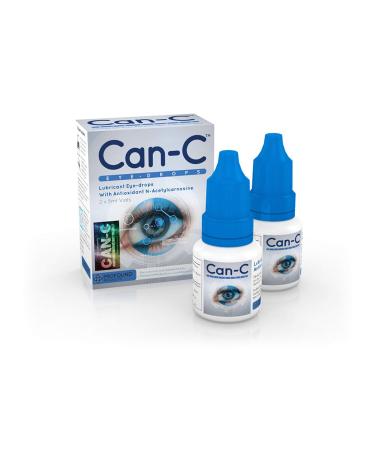Promotes satiety and supports healthy eating patterns.*
May promote weight loss as part of a weight loss plan.*
An exciting area of research recently regaining attention is the relationship between serotonin and appetite—and therefore its potential to aid in the maintenance of a healthy weight. While serotonin is reknown for its function in the brain, 95% of serotonin is actually found in the gastrointestinal tract. Accordingly, serotonin is deeply involved in gut physiology, including visceral perception and weight maintenance.8 In research where 5-HTP was administered at higher doses, it was discovered that these high doses of 5-HTP produced weight loss in subjects, mainly through its influence on satiety and an altered appetite for specific macronutrients.
A study that orally administered either 5-HTP or placebo to 19 women for 5 weeks (without any dietary restrictions) resulted in significantly decreased food intake and weight loss in the women taking 5-HTP, compared to placebo.9 In a double-blind, randomized study, 20 subjects received either 5-HTP capsules or placebo for 6 weeks with dietary restrictions, and then for 6 weeks without dietary restrictions. During both periods (with or without dietary restrictions), the 5-HTP subjects experienced early satiety, a reduction in carbohydrate intake, and significant weight loss compared to placebo.10 In a subsequent double-blind, randomized study, 11 subjects received placebo and 9 subjects received 5-HTP capsules for 2 weeks. The 5-HTP group experienced weight loss through a significant decrease in carbohydrate and fat intake.11
An animal study took experimental use of 5-HTP a step further by investigating food deprivation and also stress-induced eating. Although the 5-HTP was injected rather than orally administered in the rats, results clearly showed that administration of 5-HTP suppressed e
ting compared to placebo treatment in food-deprived rats and even more so in rats undergoing stress.12
May improve quality of sleep.*
Studies have shown that 5-HTP influences the quality of sleep by increasing REM (rapid eye movement) sleep. Administration of as little as 200 mg of 5-HTP in the evening prior to bedtime has been shown to increase the duration of REM sleep from 5 to 53% and decrease the amount of non-REM sleep.13
Potent scavenger of free radicals.*
Compounds such as vitamin E and flavonoids derive their free-radical quenching ability from their hydroxyl groups (–OH), which donate electrons to oxidants. 5-HTP is formed from tryptophan by the addition of an –OH group, which gives 5-HTP its antioxidant properties. This is in contrast to tryptophan, which is sensitive to oxidation. The effectiveness of 5-HTP in preventing lipid and protein oxidation is believed to contribute to liver cell integrity by countering membrane rigidity.14 A recent laboratory test demonstrated that 5-HTP is a more effective hydroxyl radical scavenger than even vitamin C.15
Safety:
Oral administration of 5-HTP in clinical studies has resulted in gastrointestinal disturbances such as nausea, vomiting and diarrhea. According to a review of several studies, these effects are tolerated by most patients and tend to lessen over time. Side effects are more marked with higher doses.5 A recent review in a toxicology journal concludes that while undue speculation was raised years ago, 'there is no evidence to implement 5-HTP intake as a cause of any illness'.16
Scientific References:
1. Birdsall, T.C., 5-Hydroxytryptophan: a clinically-effective serotonin precursor. Altern Med Rev, 1998. 3(4): p. 271-80.
2. 5-hydroxytryptophan. Alternative Medicine Review, 1998. 3(3): p. 224-226.
3. van Praag, H.M. and J. Korf, 5-Hydroxytrytophan as an antidepressant. The predictive value of the probenecid test. J Nerv Ment Dis, 1974. 158(5): p. 331-7.
4. Turner, E.H., J.M. Loftis, and A.D. Blackwell, Serotonin a la carte: supplementation with the serotonin precursor 5-hydroxytryptophan. Pharmacol Ther, 2006. 109(3): p. 325-38.
5. Byerley, W.F., et al., 5-Hydroxytryptophan: a review of its antidepressant efficacy and adverse effects. J Clin Psychopharmacol, 1987. 7(3): p. 127-37.
6. Baldewicz, T., et al., Plasma pyridoxine deficiency is related to increased psychological distress in recently bereaved homosexual men. Psychosom Med, 1998. 60(3): p. 297-308.
7. Maron, E., et al., The effect of 5-hydroxytryptophan on cholecystokinin-4-induced panic attacks in healthy volunteers. J Psychopharmacol, 2004. 18(2): p. 194-9.
8. Hasler, W.L., Serotonin and the GI tract. Curr Gastroenterol Rep, 2009. 11(5): p. 383-91.
9. Ceci, F., et al., The effects of oral 5-hydroxytryptophan administration on feeding behavior in obese adult female subjects. J Neural Transm, 1989. 76(2): p. 109-17.
10. Cangiano, C., et al., Eating behavior and adherence to dietary prescriptions in obese adult subjects treated with 5-hydroxytryptophan. Am J Clin Nutr, 1992. 56: p. 863-867.
11. Cangiano, C., et al., Effects of oral 5-hydroxy-tryptophan on energy intake and macronutrient selection in non-insulin dependent diabetic patients. International Journal of Obesity, 1998. 22: p. 648-654.
12. Amer, A., et al., 5-Hydroxy-L-tryptophan suppresses food intake in food-deprived and stressed rats. Pharmacology Biochemistry and Behavior, 2004. 77(1): p. 137-143.
13. Wyatt, R.J., et al., Effects of 5-hydroxytryptophan on the sleep of normal human subjects. Electroencephalogr Clin Neurophysiol, 1971. 30(6): p. 505-9.
14. Reyes-Gonzales, M.C., et al., Effects of Tryptophan and 5-Hydroxytryptophan on the Hepatic Cell Membrane Rigidity Due to Oxidative Stress. J Membr Biol, 2009.
15. Keithahn, C. and A. Lerchl, 5-hydroxytryptophan is a more potent in vitro hydroxyl radical scavenger than melatonin or vitamin C. J Pineal Res, 2005. 38(1): p. 62-6.
16. Das, Y.T., et al., Safety of 5-hydroxy-L-tryptophan. Toxicol Lett, 2004. 150(1): p. 111-22













